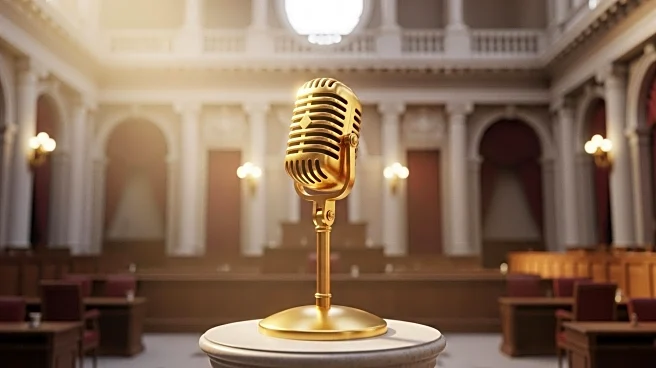What's Happening?
The US Court of Appeals for the DC Circuit has issued a per curiam order preventing the US Agency for Global Media (USAGM) from removing Michael Abramowitz as the Director of Voice of America (VOA). This decision comes as the agency appeals a previous court order that deemed Abramowitz's removal illegal. The court highlighted that the injunction does not allow Abramowitz to exercise executive power nor does it disrupt the Executive Branch's functioning, differentiating it from other cases where the Supreme Court identified potential harm to the government. Abramowitz, along with other VOA journalists, had filed lawsuits against USAGM following directives from President Trump to minimize the agency's functions. A DC district judge had earlier ruled that Abramowitz's removal was contrary to law.
Why It's Important?
This ruling underscores the legal complexities surrounding the removal of government officials and the checks on executive power. The decision protects the independence of VOA, a key international broadcaster, ensuring that its leadership cannot be changed without due process. This has implications for media freedom and the integrity of government agencies, particularly in the context of political directives. The ruling also highlights the role of the International Broadcasting Advisory Board, which must approve any changes in VOA leadership, emphasizing the importance of governance structures in maintaining agency independence.
What's Next?
The USAGM will continue its appeal process, but the current injunction means Abramowitz remains in his position until the legal proceedings conclude. The agency may need to address the quorum issue within the International Broadcasting Advisory Board to facilitate any future leadership changes. Meanwhile, Abramowitz remains on administrative leave, indicating ongoing internal disputes. The outcome of this case could set precedents for similar disputes involving government agency leadership and executive power.
Beyond the Headlines
The case highlights broader issues of governance and accountability within US government agencies. It raises questions about the balance of power between the executive branch and independent agencies, and the legal safeguards necessary to protect agency autonomy. The situation also reflects ongoing tensions between political directives and legal frameworks designed to ensure non-partisan operation of government entities.









